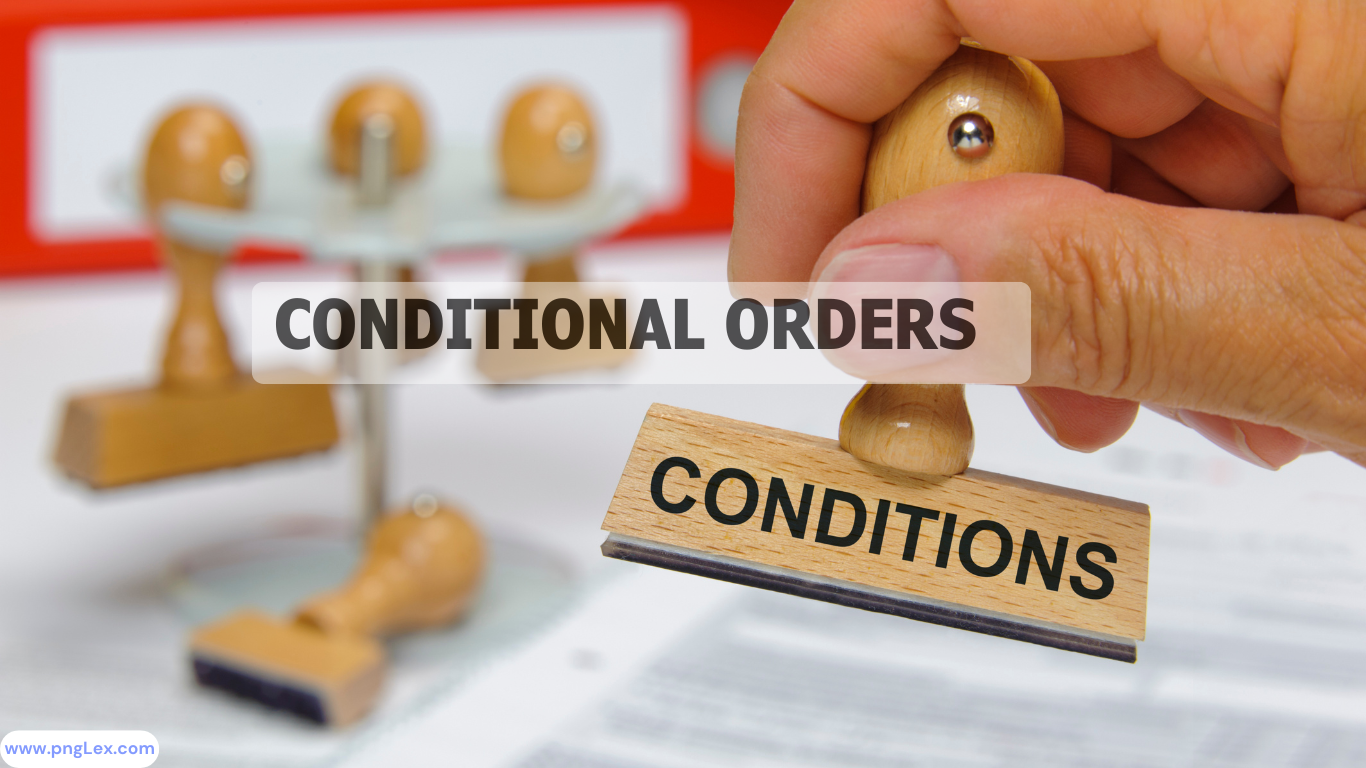Can a Plaintiff seek two (2) heads of relief at the same time? If yes, should the Court grant both reliefs? Should a Plaintiff seek the second relief in the alternate instead of seeking both reliefs? If so, should the Court grant the alternative relief instead of the main relief. This article will focus of relief sought in a claim based on breach of a contract.
This dilemma was first raised in the case of Mondo Merchants Pty Ltd v Melpa Properties Pty Ltd [1999] PGNC 112; N1863 where the Plaintiff sought two (2) heads of relief. The Plaintiff sought both specific performance of the contract and damages for breach of contract. Justice Hinchliffe took note that the Plaintiff sought these reliefs as separate heads of relief and not in the alternative. His Honour noted that the practice in Papua New Guinea to the seek such reliefs in the alternative and not together.
In Augwi Ltd v Xun Xin Xin [2014] PGSC 83; SC1616, the parties in this appeal entered into a contract of sale over a vacant piece of land that was owned by the Respondent. The purchase price for the land was agreed by the parties at the sum of K45,000.00. After the contract was given statutory approval under the Land Act, the Respondent refused to complete the contract citing, amongst other reasons, that there was a mistake as to the value of the land because its real value was K100,000.00. The appellant brought an action claiming specific performance and damages as alternative remedies. The trial judge found that the contract was valid and enforceable but declined to grant specific performance. Instead, the trial judge ordered damages to be assessed. The Appellant then appealed against the part of the judgment that relates to the choice of remedy. The Supreme Court (Injia, CJ, David & Gabi JJ) affirmed the position taken by Justice Hinchliffe in Mondo Merchants Pty Ltd v Melpa Properties Pty Ltd [supra] as follows:
“The choice of an appropriate remedy amongst the remedies claimed in an originating process is in the Court’s discretion. The appellant claimed damages as an alternative remedy in the statement of claim endorsed on the writ and it was open to the trial judge to consider damages as an alternative remedy. In Papua New Guinea, specific performance and damages in a contract for sale of land are available as alternate remedies but not both: Mondo Merchants Pty Ltd v Melpa Properties and Koang No.47 Ltd (1999) N1863. The question is whether the exercise of discretion was erroneous in the circumstances.”
Discretion of the Court
The Court, in exercising its discretion to grant the appropriate relief, must ensure that certain requirements are met. As a general rule, a finding by the Court that a valid and enforceable contract for the sale of land is, at law, a precondition to the grant of the equitable remedy of specific performance. Specific performance, of a contract of sale of land, as an equitable remedy, must follow as a matter of course except where the circumstances of the case falls under any of the recognized exceptions to this rule.
Exceptions to the Rule
The exceptions to the rule include a case where:
- the plaintiff is guilty of laches in bringing an action for specific performance.
- the subject matter of the contract no longer exists.
- As much as specific performance in a contract for sale of land is a right of the vendor against a defaulting purchaser, it is a right of the purchaser against a defaulting vendor.
- A valid contract for sale of land, enforceable by specific performance, exists irrespective of grant of statutory approval of the contract under the Land Act.
- there is no contract to be specifically performed.
- the contract is unenforceable because of non-compliance with statute of frauds legislation (Frauds and Limitations Act).
- there is lack of mutuality.
The Court in Augwi Ltd v Xun Xin Xin [supra] found that a mistake as to the value of the land is not amongst those recognized exceptions. A contract for the sale of land is a special contract that the law requires to be in writing. A vendor should not renege on the contract by disputing the contract price and refuse to complete the sale because he has, since entering, into the contract changed his mind on the selling price for a better offer. When a willing vendor and purchaser have freely entered into a valid and binding contract, a Court doing equity can compel, by an order of specific performance, an unwilling vendor to do what a willing vendor would do, and that is to complete the sale. Equity will come to the aid of the purchaser to compel an unwilling vendor to perform the contract by taking all necessary steps to complete the sale. The contract did not fall under any of the recognized exceptions to the general rule that specific performance of a contract for sale of land must follow as a matter of course. The Court, therefore, found that the trial judge erred in his judgement to choose damages as a relief rather than specific performance. Hence, the appeal was allowed.
In Derwent Ltd v Pakena [2020] PGNC 77; N8294 (Justice David) and Papindo Trading Co Ltd v Tolopa [2023] PGNC 97; N10211 (Justice Dowa) affirmed and adopted the position applied in Augwi Ltd v Xun Xin Xin [supra] and in Mondo Merchants Pty Ltd v Melpa Properties Pty Ltd [supra]that in Papua New Guinea, specific performance and damages in a contract for sale of land are available as alternate remedies, but not both.
In conclusion, if a person is bringing a claim against another party based on breach of contract, it would be the best option to plead reliefs in the alternative. The Court can then deliberate on the law and evidence and award the most appropriate relief.
For more similar articles, click here.







